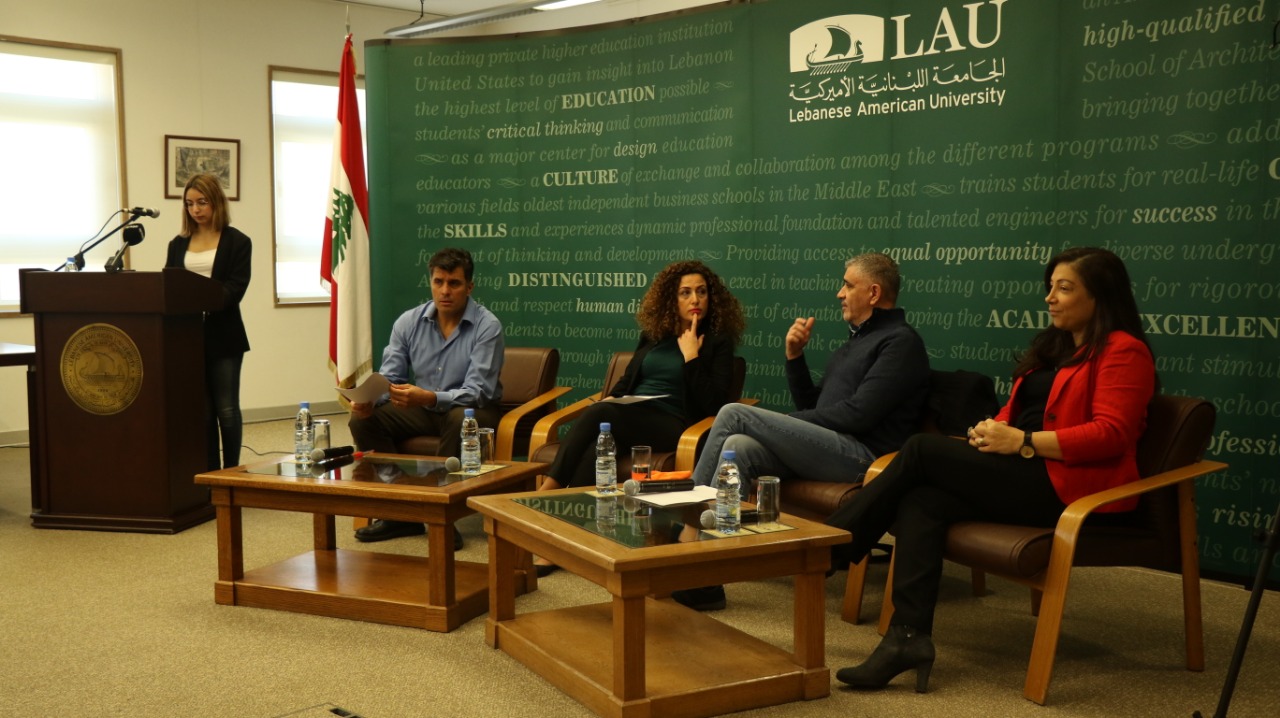BEIRUT: The Institute of Media Research and Training (IMRT) at the Lebanese American University (LAU) launched its study on “Media Uses and Trust During Protests” in a press conference on Monday, March 2 at noon at the Riyad Nassar Library, LAU Beirut campus.
The study surveyed a nationally representative random sample of 1,000 Lebanese during the height of the ongoing protests (December 5-12). It explored which traditional and new media platforms, especially television channels and social media, Lebanese people mainly access and trust for news about the protests, and which media platforms they mainly engage with to share news about the protests.
The research was conducted by IMRT’s Media/War program and lead by IMRT Director Dr. Jad Melki and IMRT Research Director Dr. Claudia Kozman and funded by LAU’s School of Arts and Sciences (SoAS) and the Office of Graduate Studies and Research (GSR).
“This study puts to rest all the rumors about how many people support and oppose the protests, which media stations have been followed or ignored and all the accusations against various Lebanese media,” said Melki. “It also helps news institutions and journalists better understand new media habits and better serve their audiences.”
The significance and timeliness of the study lay on the fact that such theoretical frameworks as media uses and selective exposure have rarely been applied to conflict and unrest situations— a matter surprisingly understudied despite the record number of protests and conflicts globally and the significant role of digital media in instigating, sustaining and propelling them.
“From a theoretical standpoint, this study confirms research about selective exposure, which underlines people’s tendency to expose themselves to media that align with their attitudes,” said Kozman. “Practically, the results indicate Lebanese people read and watch media outlets that resonate with their beliefs about the protests.”
As an area plagued by continuous conflict and civil strife, the Arab region is ripe for research on conflict and media effects, which offers a better understanding of how news sources can deliver appropriate content to populations during dangerous and uncertain situations.
This study is part of a larger international study that examines media uses and selective exposure in other parts of the world affected by protests and unrest.
“We plan to release other working papers focused on national data in Iraq, Chile, Iran, France and Hongkong and then some comparative studies about these countries,” revealed Melki. “The overarching goal is to apply theoretical questions and practical media use questions to unusual situations.”
Major Findings Overall trends• Two-thirds (65.3%) of Lebanese say they support the protests but only about a quarter (27.9%) say they actually joined the protests in the streets. Only 6.2% of Lebanese say they have had some media literacy training in their life, and almost half of surveyed Lebanese (46.2%) say they are currently unemployed.
• Barely any Lebanese say they are members of political parties (3%) and that their allegiance to their sect is the most important (3.5%), while almost three-quarters say they are neither supporters nor members of any political party (71.4%) and that their allegiance to their country is the most important (72.6%).
• The overwhelming majority of Lebanese follow television for news about the protests, with WhatsApp and Facebook coming in second and third place. Among the television channels, alJadeed, LBCI and MTV are the most followed and the most trusted. Trust in media platforms and television channels
• Television also ranks first when it comes to trust: 88.7% of Lebanese say they sometimes or often trust news about the protests from television, while WhatsApp (69.4%) and Facebook (60.5%) come in second and third place. The least trusted news sources are newspapers (27.5%) and blogs (26.8%).
• Consistently, al-Jadeed (55.5%) and LBCI (54.8%) both register the highest level of trust from the Lebanese public. MTV follows distantly (43.7%). OTV (23.1%), al-Manar (21.2%) and NBN (17%) again barely capture the trust of a quarter of the Lebanese people.
• For regional channels, again al-Mayadeen (17.8%) ranks first when it comes to trust level, while none of the other regional channels exceed 5% of the public’s trust. The study is part of the ongoing Media/War program of the Institute of Media Research and Training (IMRT) at the Lebanese American University (LAU). The Media and War program covers a board area of research that situates media research within the context of Arab wars, conflicts and politics. This press conference will launch the series of research seminars initiated by LAU’s School of Arts and Sciences (SoAS).

